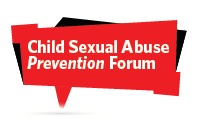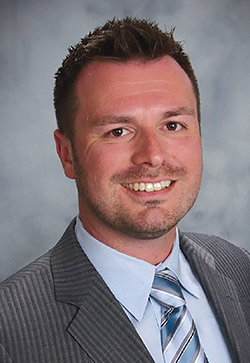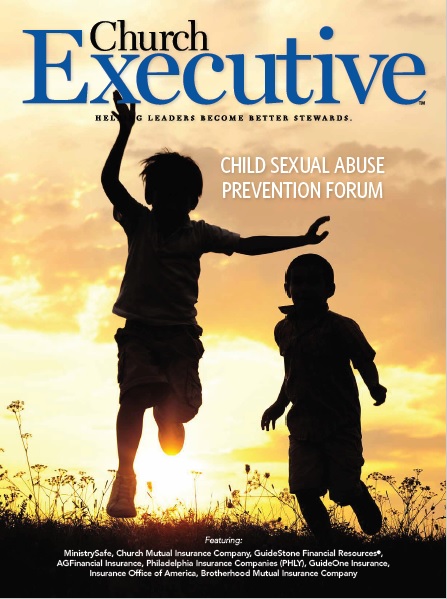
 The mission of any religious organization is to minister to its congregation in a safe and nurturing environment. One of the most important aspects of this mission should be protecting the most vulnerable of their flock.
The mission of any religious organization is to minister to its congregation in a safe and nurturing environment. One of the most important aspects of this mission should be protecting the most vulnerable of their flock.
Unfortunately, child sexual abuse within religious organizations is still a grim reality, yet many ministries fall short of the necessary practices needed to safeguard their young parishioners.

Senior Business Operations Analyst,
Risk Management Services (RMS) Department
Philadelphia Insurance Companies (PHLY)
Why do they fall short?
There can be multiple answers to this question. One is the misconception that a person who would do something so heinous would be a stranger to the congregation and to the child. The truth is, among the cases of child sexual abuse reported to law enforcement, 93 percent involve a perpetrator that the child knows and trusts, such as a relative, care provider, family friend, coach, student leader, or ministry volunteer, according to Rape, Abuse & Incest National Network (RAINN).
We perform background checks, so our programs are safe, is another dangerous misconception. While background checks are important, less than 10 percent of sexual abusers will ever see a courtroom and only 3 percent will be convicted. This means roughly 97 percent of sexual abusers will pass a simple background check.
Finally, one of the most common reasons religious organizations fall short of the needed safeguards to protect children in their ministry is a lack of knowledge. It’s important to understand that an effective child sexual abuse prevention program consists of key elements that work in concert to build barriers that filter out possible perpetrators and creates a warning system within the organization that can help detect dangerous behavior. These key elements include:
Support from ministry leadership
Everyone in the organization — from the most senior leader to the newest volunteer — is vital to the success of the program. When ministry leadership supports the various measures and protocols needed, it demonstrates their commitment to protecting children from sexual abuse.
Documented policies and procedures
Having written policies and procedures helps to communicate a consistent message, especially when there are multiple locations or ministry programs. These policies should include a prohibitive position statement, clear instructions on how to report suspected abuse, and detailed guidance on “grooming,” a process used by perpetrators to gain trust from both the child and other adults.
Documented employee and volunteer training

Training should be provided to all congregants who work with children — from the youth minister to the nursery volunteer — when hired and annually thereafter. It should include a review of the written practices that have been implemented, the grooming process, reporting procedures, and what are considered inappropriate interactions with youth.
Specific training for hiring managers
In addition to receiving the general training mentioned above, anyone who hires employees or volunteers should also receive training on elements placed in the hiring process to weed out possible abusers, which include reviewing the employment / volunteer application, completing reference checks, and conducting thorough interviews with questions that elicit high-risk responses.
Criminal background checks
As mentioned, background checks should not be the only part of a child sexual abuse prevention program, yet it’s still an important measure. Background checks should be conducted in accordance with state law and should be as comprehensive as possible. Be sure to reference the application and ensure any past addresses are considered when running a background check.
It’s possible that some ministries have already implemented aspects of the various measures needed to protect children, yet they might need additional support. This support is why ministry leaders should be mindful of who they partner with when choosing an insurance broker or carrier. As important as the insurance policy itself, the knowledge and available resources provided by an experienced broker or carrier can be invaluable.
Philadelphia Insurance Companies (PHLY) has this expertise and can provide the level of support religious organizations need. Consider supplementing your current abuse prevention policies and training with PHLY’s resources, offered in partnership with MinistrySafe. These easy-to-use, online resources can help reduce the risk of child sexual abuse in children’s programs. They are available to PHLY policyholders with sexual abuse and molestation coverage at no additional cost. Visit PHLY.com/Religious for more information.
The information and suggestions presented by Philadelphia Indemnity Insurance Company is for your consideration in your loss prevention efforts. They are not intended to be complete or definitive in identifying all hazards associated with your business, preventing workplace accidents, or complying with any safety related, or other laws or regulations. You are encouraged to alter them to fit the specific hazards of your business and to have your legal counsel review all of your plans and company policies.


